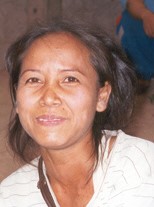Oy in Laos

Photo Source:
Copyrighted © 2026
Peoples of Laos, Asia Harvest All rights reserved. Used with permission |
Send Joshua Project a map of this people group.
|
| People Name: | Oy |
| Country: | Laos |
| 10/40 Window: | Yes |
| Population: | 26,000 |
| World Population: | 26,000 |
| Primary Language: | Oy |
| Primary Religion: | Buddhism |
| Christian Adherents: | 1.00 % |
| Evangelicals: | 0.80 % |
| Scripture: | Portions |
| Ministry Resources: | No |
| Jesus Film: | No |
| Audio Recordings: | Yes |
| People Cluster: | Mon-Khmer |
| Affinity Bloc: | Southeast Asian Peoples |
| Progress Level: |
|
Introduction / History
The Oy say they originated in China and have lived in their present location for 150 years. Some of the Oy live in 21 villages on the fertile Boloven Plateau region of southern Laos and others live at the foot of the plateau. Many of the Mon Khmer groups in the south are grouped together so that the Oy live intermingled with Brau and Ngae peoples.
What Are Their Lives Like?
Their principle crop is rice.
What Are Their Beliefs?
In some ways the Oy are adopting the culture of their neighbors they still cling to ancestor worship rather than accepting Buddhism. Except for the more isolated communities, they do not practice animistic ceremonies except in times of crisis. Then the rituals resume.
The Overseas Christian Fellowship were the first mission to minister to the Oy. Part of their work was a leprosy clinic for 700 lepers in the area. The first believer was a shaman. After converting to Christ, he was murdered by his own people. They gouged out his eyes and dumped his body in the forest.
There are more than 200 believers today meeting in several churches. The Laos government has persecuted the believers greatly including imprisonment for their pastors.
What Are Their Needs?
The Oy people need more family heads who will take their families from the darkness into the light of Christ.
Prayer Points
Pray for Oy leaders to experience and embrace the glory and power of Jesus Christ.
Pray for loving and determined workers.
Pray for the Lord to make a way for the gospel to penetrate Oy families and villages.